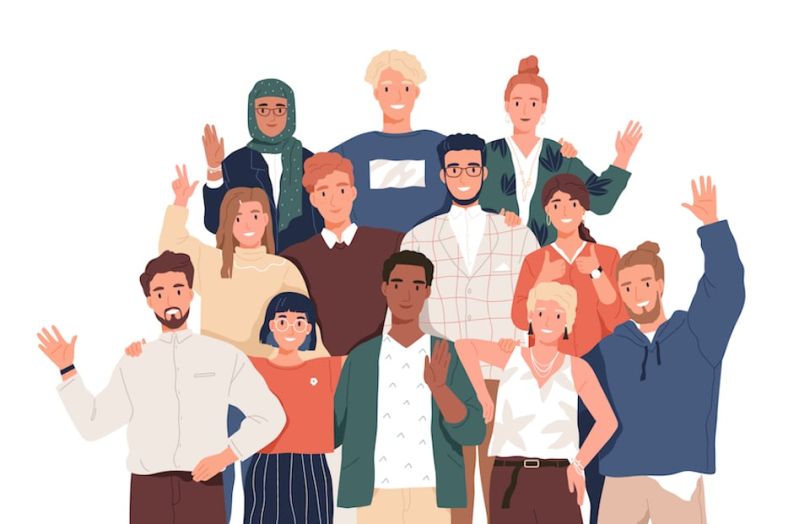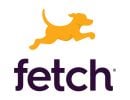
In a wolf pack, every member plays a vital role in the success of the group. And without collaboration, the pack cannot thrive.
VP of Product Ayo Jimoh said the product team at Fetch thinks similarly.
“Our product ‘packs’ are full-stack teams aligned to a business outcome. They make their own decisions and are responsible for their actions and solutions,” Jimoh said. “As the company scales, our packs allow us to retain an innovative drive, stay nimble and focus on delivering a great end-user experience.”
That user experience is one in which shoppers use Fetch to scan their receipts and earn monetary rewards based on buying popular grocery store brands like Huggies, Frito-Lay, Aleve and many others. Jimoh’s packs hunt for ways to help users earn more rewards.
During the onset of the COVID-19 pandemic, Jimoh said the company pivoted to rewarding users for receipts outside of groceries, which contributed to hundreds of millions of additional points earned that were used to benefit shoppers and charities. Jimoh’s team not only played a key role in this pivot, but they’ve also helped set the tone for what collaboration and acceptance should look like during these difficult times.
“As VP of product, I’m responsible for the delivery and execution of our product vision and strategy, leading a team of product managers and helping make Fetch a great place to work for everyone,” he said.
Just as wolf packs are complex social units, so too are product packs. With each addition to the group, the dynamic subtly shifts, and the pack must work together to find group cohesion and common ground. At Fetch, Jimoh said diversity and equitable gender representation in the pack are embraced and sought after.
The company is focused on diversity, equity and inclusion (DEI), Jimoh said, and invests in DEI curriculums and recruiters, as well as other initiatives around career development, to make Fetch a fulfilling — and empowering — place to work.
What’s an exciting project the product team is working on right now?
Our product team is currently working on expanding to new verticals beyond traditional grocery. We’ve always rewarded our shoppers for a variety of products and retailers. But we’re expanding our platform to provide rewards in increasingly valuable ways everywhere people shop, while also providing our partners with valuable first-party data and insights to drive decision-making. These new initiatives will ensure shoppers don’t have to work so hard to get rewarded for what they buy, where they shop or how they pay.
What was one of the biggest challenges the product team faced in 2020, and how did you overcome it?
Like most companies, our team needed to adapt to the changing economic and health environment to ensure we were providing value to our shoppers and partners as behaviors changed. We were able to overcome it by staying focused on our shoppers and maximizing their benefits in a time of need. Initiatives such as rewarding users for all their receipts, not just for groceries, led to our millions of users earning hundreds of millions of additional points on our platform. Our shoppers convert those points into gift cards or donations to charity.
Rather than setting explicit ladders and tiers for promotions, we reward great work early and often.”
What are some of the major tech tools and processes the product team uses to see success?
Given that we were a dual-headquartered company before COVID-19 pushed us fully remote, we always embraced remote tools for our day-to-day work. Most communication is through Slack and we use the common Atlassian tools like Jira and Confluence for project management. Miro and Figma are popular products for real-time collaboration. Everyone is encouraged to use the best tools for the job, which often includes Coda, Google Docs, Tableau, Hosted Graphite and others.
How does Fetch approach hiring/promoting from within?
Our culture is one of openness, honesty and transparency. So rather than setting explicit ladders and tiers for promotions, we reward great work early and often. Team members who show strong performance in their current role and interest in a new one are open to explore their opportunities and we’ve seen many horizontal and vertical moves.
One of our core principles is, “Understand our audience and lead them forward.” The ability to achieve that goal in one area of the business translates extremely well to other areas.
Your team values diversity and representation within the product org. How do you approach diversity within your recruitment strategies?
We’ve been successful in attracting, hiring and retaining diverse talent by using a variety of means to share our open opportunities. We use both internal and external recruiters in addition to referrals and ensure a fair process from start to finish.
Having an already-diverse product team helps a lot. I know from experience that candidates from underrepresented populations tend to feel more comfortable when they encounter a diverse team in the interview process. Our current group of product managers is a 50/50 gender split and I expect we’ll maintain that balance as we grow; not by setting quotas, but by already having balanced representation.
How does the company support diversity and inclusivity for team members on a regular basis?
Fetch has a variety of activities, initiatives, groups and practices to support diversity, equity and inclusivity (DEI). We have a DEI curriculum with monthly topics of interest to the team, self-paced education and lunch-and-learns. We also have a DEI education tool called Crescendo integrated with Slack.
Among the product management group, we’re a 50/50 gender split. The product team as a whole, which includes PMs and design, is 80 percent women, which is aligned to our user base.







